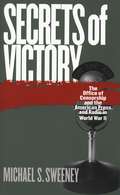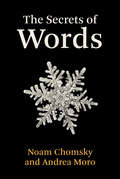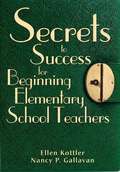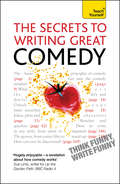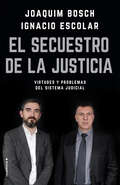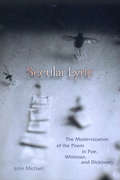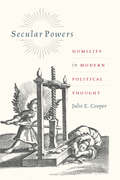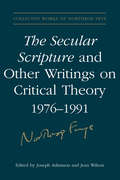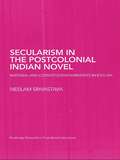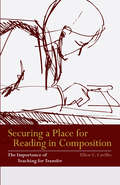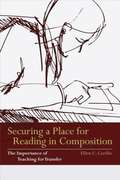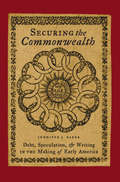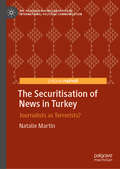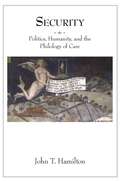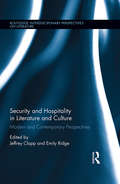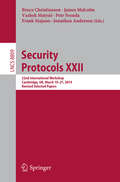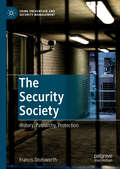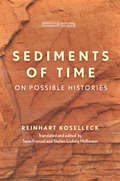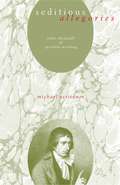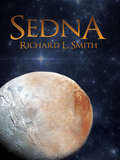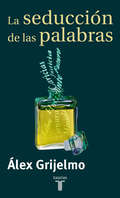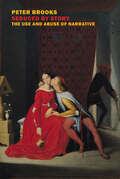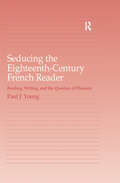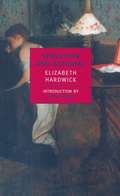- Table View
- List View
Secrets of Victory
by Michael S. SweeneyDuring World War II, the civilian Office of Censorship supervised a huge and surprisingly successful program of news management: the voluntary self-censorship of the American press. In January 1942, censorship codebooks were distributed to all American newspapers, magazines, and radio stations with the request that journalists adhere to the guidelines within. Remarkably, over the course of the war no print journalist, and only one radio journalist, ever deliberately violated the censorship code after having been made aware of it and understanding its intent.Secrets of Victory examines the World War II censorship program and analyzes the reasons for its success. Using archival sources, including the Office of Censorship's own records, Michael Sweeney traces the development of news media censorship from a pressing necessity after the attack on Pearl Harbor to the centralized yet efficient bureaucracy that persuaded thousands of journalists to censor themselves for the sake of national security. At the heart of this often dramatic story is the Office of Censorship's director Byron Price. A former reporter himself, Price relied on cooperation with--rather than coercion of--American journalists in his fight to safeguard the nation's secrets.
The Secrets of Words
by Noam Chomsky Andrea MoroTwo distinguished linguists on language, the history of science, misplaced euphoria, surprising facts, and potentially permanent mysteries.In The Secrets of Words, influential linguist Noam Chomsky and his longtime colleague Andrea Moro have a wide-ranging conversation, touching on such topics as language and linguistics, the history of science, and the relation between language and the brain. Moro draws Chomsky out on today&’s misplaced euphoria about artificial intelligence (Chomsky sees &“lots of hype and propaganda&” coming from Silicon Valley), the study of the brain (Chomsky points out that findings from brain studies in the 1950s never made it into that era&’s psychology), and language acquisition by children. Chomsky in turn invites Moro to describe his own experiments, which proved that there exist impossible languages for the brain, languages that show surprising properties and reveal unexpected secrets of the human mind. Chomsky once said, &“It is important to learn to be surprised by simple facts&”—&“an expression of yours that has represented a fundamental turning point in my own personal life,&” says Moro—and this is something of a theme in their conversation. Another theme is that not everything can be known; there may be permanent mysteries, about language and other matters. Not all words will give up their secrets.
Secrets to Success for Beginning Elementary School Teachers
by Ellen Kottler Nancy P. GallavanPacked with insider tips, practical strategies, and time-tested advice, this invaluable guide is designed for new and preservice educators. Offering a wide range of perspectives, authors Ellen Kottler and Nancy P. Gallavan cover the essential topics that novice teachers encounter, including establishing routines and classroom rules, planning instruction and assessment techniques, networking with colleagues, navigating school policies and procedures, and communicating effectively with parents. Tools and resources include:Steps for developing meaningful curriculum Activities to extend learning and apply ideas in the classroomPreparation guidelines and checklistsLesson plan formatsStrategies for including technologyServing as a virtual “mentor,” this handbook combines the insights of experienced teachers with straightforward portrayals of what to expect during the first days, weeks, semesters, and years in the classroom. Reduce your stress, improve your skills, and assure your success with this extraordinary resource.
The Secrets to Writing Great Comedy
by Lesley BownThe Secrets to Writing Great Comedy will show you how to unlock yourinner anarchist and write fantastic comedy, using a combination ofpractical exercises and creative inspiration. Whatever your preferredgenre, from sitcom to sketch show, you will fi nd guidance on everythingfrom wordplay and visual humour to plots, characters and differentstyles. There is even detailed coverage of how to submit, copyright and,most importantly, get your work noticed.
El secuestro de la justicia: Virtudes y problemas del sistema judicial
by Ignacio Escolar Joaquim Bosch Grau¿Está la justicia española secuestrada por los políticos? Joaquim Bosch (ex portavoz de Juezas y Jueces para la Democracia) e Ignacio Escolar (director de eldiario.es) han unido fuerzas para escribir un libro necesario, incisivo y pedagógico sobre la Justicia. El sistema judicial está en crisis. Así lo denuncia esta reflexión crítica sobre un deterioro que afecta profundamente a nuestra democracia. En una escalada sin precedentes, las injerencias políticas son muy visibles, se concentran en la cúpula judicial y son especialmente peligrosas en los casos de corrupción. Por otro lado, la ciudadanía percibe que las leyes no siempre son iguales para todos. Las maniobras que tratan de capturar las instituciones judiciales están relacionadas con un fenómeno más amplio: los intentos de secuestro de la Justicia como valor. Por eso los autores también estudian: las injusticias que padecen las víctimas de violencia machista, y los que padecen abusos bancarios; los problemas en la aplicación de la prisión provisional o los excesos en los límites de la política de penas de privación de libertad; el drama de los refugiados y la criminalización de los inmigrantes; la falta de reparación de las víctimas del franquismo; la actuación de la justicia en el conflicto catalán; y los crecientes recortes de libertades. Pero El secuestro de la Justicia es también una defensa de la magnífica base del sistema judicial, esa inmensa mayoría de magistrados que no se ha dejado contaminar. Como los que llevaron los abusos bancarios a la jurisdicción europea y vencieron. O los que, sin medios suficientes, investigan la corrupción y ponen contra las cuerdas a políticos y a empresarios. La crítica ha dicho...«Relato pedagógico sobre separación de poderes.»EFE «Un texto ensayístico, pero escrito con estilo periodístico, orientado a plantear una larga serie de reflexiones y dudas sobre el llamado tercer poder.»Juan Bolea, El Periódico de Aragón «Un libro fundamentalpara entender nuestro país. No solo recomendable, sino imprescindible.»Carlos Ávila, Andamios (y la vida sigue)
Secular Lyric: The Modernization of the Poem in Poe, Whitman, and Dickinson
by John MichaelIn Secular Lyrics, Michael interrogates the distinctively individual ways that Poe, Whitman, and Dickinson adapt ancient and renaissance conventions of lyric expression to the developing conditions of their modern context, and especially to the heterogeneity of beliefs and believers in a secular society and to the altered or emergent role that literature assumes in a secular age. In close readings of Poe, Whitman, and Dickinson, Michael analyzes how each of these poets registers the pressures and possibilities of thesechanges in the contexts and audiences for poetry within the transformative tropes and rhetorical textures of their poems. Especially Michael shows how each of these poets, in idiosyncratic but related ways, registers the pressures of the modern crowd—which Benjamin rightly identified as nineteenth-century poetry’s essential topic—within their poems, where the mass appears as potential readers, as resistant skeptics, as a heterogeneous crowd of contending beliefs and contentious believers. (Here Michael engages Charles Taylor’s redefinitions of secularity in his epochal A Secular Age and recent debates about the secularity or post-secularity of literature and criticism in our present moment.) These nineteenth-century poets (unlike their more conventional contemporaries) cannot imagine credibly advising, authoritatively sermonizing, or effectively consoling the mass, heterogeneous audience they confront. For them, the processes of signification rather than the communication of truths become central to their poetry, which in turn becomes an important origin of the modern poetry that in Europe and the United States follows. Each invokes the normative practices that have long characterized Western poetry only to disrupt the audience’s conventional expectations and enliven the reader’s sense of language’s material density and the limits and potentials of modern life. What Kristeva, years ago, identified as a revolution in poetic language begins not with Mallarmé but with Poe, Whitman, and Dickinson, in their attempts to create a space for literature in the modern, secular era they sensed stirring the atmosphere around them.
Secular Powers: Humility in Modern Political Thought
by Julie E. CooperSecularism is usually thought to contain the project of self-deification, in which humans attack GodOCOs authority in order to take his place, freed from all constraints. Julie E. Cooper overturns this conception through an incisive analysis of the early modern justifications for secular politics. While she agrees that secularism is a means of empowerment, she argues that we have misunderstood the sources of secular empowerment and the kinds of strength to which it aspires. Contemporary understandings of secularism, Cooper contends, have been shaped by a limited understanding of it as a shift from vulnerability to power. But the works of the foundational thinkers of secularism tell a different story. Analyzing the writings of Hobbes, Spinoza, and Rousseau at the moment of secularityOCOs inception, she shows that all three understood that acknowledging oneOCOs limitations was a condition of successful self-rule. And while all three invited humans to collectively build and sustain a political world, their invitations did not amount to self-deification. Cooper establishes that secular politics as originally conceived does not require a choice between power and vulnerability. Rather, it challenges usOCotoday as thenOCoto reconcile them both as essential components of our humanity. "
The Secular Scripture and Other Writings on Critical Theory, 1976?1991
by Jean Wilson Joseph Adamson Northrop FryeNorthrop Frye's The Secular Scripture was first published in 1976 and was soon recognized as one of his most influential works, reflecting an extensive development of Frye's thoughts about romance as a literary form. This new edition in the Collected Works of Northrop Frye series brings The Secular Scripture together with thirty shorter pieces pertaining to literary theory and criticism from the last fifteen years of Frye's life.Frye's study illuminates the enduring attraction and deep human significance of the romance genre in all its forms. He provides a unique perspective on popular fiction and culture and shows how romance forms have, by their very structural and conventional features, an ability to address both specific social concerns and deep and fundamental human concerns that span time and place. In distinguishing popular from elite culture, Frye insists that they are both ultimately two aspects of the same "human compulsion to create in the face of chaos." The additional late writings reflect Frye's sense at the time that he was working "toward some kind of final statement," which eventually saw the light of day, only months before his death, as Words with Power (1990).
Secularism in the Postcolonial Indian Novel: National and Cosmopolitan Narratives in English (Routledge Research in Postcolonial Literatures)
by Neelam SrivastavaFirst Published in 2007. Routledge is an imprint of Taylor & Francis, an informa company.
Securing a Place for Reading in Composition: The Importance of Teaching for Transfer
by Ellen C. CarilloSecuring a Place for Reading in Composition addresses the dissonance between the need to prepare students to read, not just write, complex texts and the lack of recent scholarship on reading-writing connections. Author Ellen C. Carillo argues that including attention-to-reading practices is crucial for developing more comprehensive literacy pedagogies. Students who can read actively and reflectively will be able to work successfully with the range of complex texts they will encounter throughout their post-secondary academic careers and beyond. Considering the role of reading within composition from both historical and contemporary perspectives, Carillo makes recommendations for the productive integration of reading instruction into first-year writing courses. She details a “mindful reading” framework wherein instructors help students cultivate a repertoire of approaches upon which they consistently reflect as they apply them to various texts. This metacognitive frame allows students to become knowledgeable and deliberate about how they read and gives them the opportunity to develop the skills useful for moving among reading approaches in mindful ways, thus preparing them to actively and productively read in courses and contexts outside first-year composition. Securing a Place for Reading in Composition also explores how the field of composition might begin to effectively address reading, including conducting research on reading, revising outcome statements, and revisiting the core courses in graduate programs. It will be of great interest to writing program administrators and other compositionists and their graduate students.
Securing a Place for Reading in Composition
by Ellen C. CarilloSecuring a Place for Reading in Composition addresses the dissonance between the need to prepare students to read, not just write, complex texts and the lack of recent scholarship on reading-writing connections. Author Ellen C. Carillo argues that including attention-to-reading practices is crucial for developing more comprehensive literacy pedagogies. Students who can read actively and reflectively will be able to work successfully with the range of complex texts they will encounter throughout their post-secondary academic careers and beyond. Considering the role of reading within composition from both historical and contemporary perspectives, Carillo makes recommendations for the productive integration of reading instruction into first-year writing courses. She details a "mindful reading" framework wherein instructors help students cultivate a repertoire of approaches upon which they consistently reflect as they apply them to various texts. This metacognitive frame allows students to become knowledgeable and deliberate about how they read and gives them the opportunity to develop the skills useful for moving among reading approaches in mindful ways, thus preparing them to actively and productively read in courses and contexts outside first-year composition. Securing a Place for Reading in Composition also explores how the field of composition might begin to effectively address reading, including conducting research on reading, revising outcome statements, and revisiting the core courses in graduate programs. It will be of great interest to writing program administrators and other compositionists and their graduate students.
Securing the Commonwealth: Debt, Speculation, and Writing in the Making of Early America
by Jennifer J. BakerSecuring the Commonwealth examines how eighteenth-century American writers understood the highly speculative financial times in which they lived. Spanning a century of cultural and literary life, this study shows how the era's literature commonly depicted an American ethos of risk taking and borrowing as the peculiar product of New World daring and the exigencies of revolution and nation building. Some of the century's most important writers, including Cotton Mather, Benjamin Franklin, Royall Tyler, Charles Brockden Brown, and Judith Sargent Murray, believed that economic and social commonwealth—and one's commitment to that commonwealth—might be grounded in indebtedness and financial insecurity. These writers believed a cash-poor colony or nation could not only advance itself through borrowing but also gain reputability each time it successfully paid off a loan. Equally important, they believed that debt could promote communality: precarious public credit structures could exact popular commitment; intricate financial networks could bind individuals to others and to their government; and indebtedness itself could evoke sympathy for the suffering of others. Close readings of their literary works reveal how these writers imagined that public life might be shaped by economic experience, and how they understood the public life of literature itself. Insecure times strengthened their conviction that writing could be publicly serviceable, persuading readers to invest in their government, in their fellow Americans, and in the idea of America itself.
The Securitisation of News in Turkey: Journalists as Terrorists? (The Palgrave Macmillan Series in International Political Communication)
by Natalie MartinThis book examines why Turkey has become infamous as a repressor of news media freedom. For the past decade or so it has stood alongside China as a notorious jailer of journalists – at the same time as being a candidate state of the EU. The author argues that the reasons for this conundrum are complex and whilst the AKP is responsible for the most recent illiberality, its actions should be taken in the wider context of Turkish politics – and the three way battle for power which has been raging between Kemalists, Kurds and Islamists since the republic was founded in 1923. The AKP are the current winners of this tripartite power struggle and the securitisation of journalists as terrorists is part of that quest. Moreover, whilst securitisation is not new, it has intensified recently as the number of the AKP’s political opponents has proliferated. Securitisation is also a means of delegitimising journalism – and neutralizing any threat to the AKP’s electoral prospects – whilst maintaining a democratic façade on the world stage. Lastly, the book argues that whilst the AKP’s securitisation of news began as a means of quashing the reporting of illiberality against wider political targets, since 2016 it has become a target in its own right. In the battle for power in Turkey, journalism is now one of the many losers.
Security: Politics, Humanity, and the Philology of Care (Translation/Transnation #34)
by John T. HamiltonFrom national security and social security to homeland and cyber-security, "security" has become one of the most overused words in culture and politics today. Yet it also remains one of the most undefined. What exactly are we talking about when we talk about security? In this original and timely book, John Hamilton examines the discursive versatility and semantic vagueness of security both in current and historical usage. Adopting a philological approach, he explores the fundamental ambiguity of this word, which denotes the removal of "concern" or "care" and therefore implies a condition that is either carefree or careless. Spanning texts from ancient Greek poetry to Roman Stoicism, from Augustine and Luther to Machiavelli and Hobbes, from Kant and Nietzsche to Heidegger and Carl Schmitt, Hamilton analyzes formulations of security that involve both safety and negligence, confidence and complacency, certitude and ignorance. Does security instill more fear than it assuages? Is a security purchased with freedom or human rights morally viable? How do security projects inform our expectations, desires, and anxieties? And how does the will to security relate to human finitude? Although the book makes clear that security has always been a major preoccupation of humanity, it also suggests that contemporary panics about security and the related desire to achieve perfect safety carry their own very significant risks.
Security and Hospitality in Literature and Culture: Modern and Contemporary Perspectives (Routledge Interdisciplinary Perspectives on Literature)
by Emily Ridge Jeffrey ClappWith contributions from an international array of scholars, this volume opens a dialogue between discourses of security and hospitality in modern and contemporary literature and culture. The chapters in the volume span domestic spaces and detention camps, the experience of migration and the phenomena of tourism, interpersonal exchanges and cross-cultural interventions. The volume explores the multifarious ways in which subjects, citizens, communities, and states negotiate the mutual, and potentially exclusive, desires to secure themselves and offer hospitality to others. From the individual’s telephone and data, to the threshold of the family home, to the borders of the nation, sites of securitization confound hospitality’s injunction to openness, gifting, and refuge. In demonstrating an interrelation between ongoing discussions of hospitality and the intensifying attention to security, the book engages with a range of literary, cultural, and geopolitical contexts, drawing on work from other disciplines, including philosophy, political science, and sociology. Further, it defines a new interdisciplinary area of inquiry that resonates with current academic interests in world literature, transnationalism, and cosmopolitanism.
Security Protocols XXIII
by Jonathan Anderson Frank Stajano James Malcolm Vashek Matyáš Petr Švenda Bruce ChristiansonThis book constitutes the thoroughly refereed post-workshop proceedings of the 23rd International Workshop on Security Protocols, held in Cambridge, UK, in March/April 2015. After an introduction the volume presents 18 revised papers each followed by a revised transcript of the presentation and ensuing discussion at the event. The theme of this year's workshop is "Information Security in Fiction and in Fact".
The Security Society: History, Patriarchy, Protection (Crime Prevention and Security Management)
by Francis DodsworthThis book provides a critical engagement with the idea of the ‘security society’ which has been the focus of so much attention in criminology and the social sciences more broadly. ‘Security’ has been argued to constitute a new mode of social ordering, displacing the ‘disciplinary society’ that Foucault saw as characteristic of the liberal era. He saw a ‘control society’ (or ‘risk society’) characteristic of Neo-Liberalism, in which the deviant behaviour of particular individuals, as less important than general attempts to offset risk and reduce harm. Dodsworth argues that much of this literature is extraordinarily present-ist in orientation, denying the long history of attempts to mitigate risk, prevent harm and manage security which have always been a part of the government of order. This book develops a ‘critical history’ of security: a thematic analysis of debates about security and aspects of the security society which puts contemporary arguments and practices in dialogue with the texts and practices of the past. In doing so the book develops a cultural analysis of the meanings of security and the way these meanings have been articulated in particular practical contexts in order to understand how the promise of security has so effectively captured the imagination and channeled the effective engagement of people throughout the modern period.
Sediments of Time: On Possible Histories (Cultural Memory in the Present)
by Reinhart Koselleck Sean Franzel Stefan-Ludwig HoffmannSediments of Time features the most important essays by renowned German historian Reinhart Koselleck not previously available in English, several of them essential to his theory of history. The volume sheds new light on Koselleck's crucial concerns, including his theory of sediments of time; his theory of historical repetition, duration, and acceleration; his encounters with philosophical hermeneutics and political and legal thought; his concern with the limits of historical meaning; and his views on historical commemoration, including that of the Second World War and the Holocaust. A critical introduction addresses some of the challenges and potentials of Koselleck's reception in the Anglophone world.
Seditious Allegories: John Thelwall and Jacobin Writing
by Michael ScrivenerThe multifaceted career of John Thelwall (1764-1834)—poet, novelist, playwright, journalist, politician, scientist—is the lens through which we are offered here a new look at the phenomenon of British Jacobinism, long distorted by the critical view of it as intellectually weak bequeathed to us by Coleridge and Wordsworth, once Jacobins themselves. This book, the first on Thelwall in almost one hundred years, combines literary analysis and historical description to show how this innovative political activist remained true to his radicalism while adapting his methods in the face of the anti-Jacobin reaction that Paine's The Rights of Man helped set off.The three parts of the book set Thelwall's achievements and challenges in the political and literary context of his times. Part One, "Jacobin(s) Writing," focuses on the most essential aspects, ideologically and formally, of the insurgent writing of the 1790s to which Thelwall contributed. Part Two, "The Voice of the People," treats both Thelwall's radical oratory and journalism, as well as his writings and activities as a natural scientist and rhetorician, a professor and technician of "elocution." Part Three, "Jacobin Allegory," expounds on Thelwall's characteristic strategy of indirect expression through synecdoche and allegory, which he used in his later career after repression forced him out of politics.Through Thelwall's life Michael Scrivener succeeds in revealing how British Jacobinism reshaped the public sphere, initiating numerous literary experiments with oratory, pamphlets, periodicals, popularizations, and songs in the spaces opened up by political associations, lectures, meetings, and trials. Jacobinism thus altered the very institutions of reading and writing by expanding literacy, restructuring the popular arena for reading, and generating a body of diverse texts that were "seditious allegories."
Sedna
by Richard L. SmithThe year is 2117. The United World Science Foundation has sanctioned a team of geologists to explore the remote minor planet known as Sedna. About one-half the diameter of Pluto, Sedna orbits twice as faraway from Earth as Pluto is, and at this distance, it receives only weak sunlight and is dark, cold, and forbidding. Discovered in the first decade of the twenty first century, the first astronauts landed on its surface in 2087. This geological team will be the first scientists to explore the surface of this remote icy world. Astronomers have been unable to explain the unusual mass, density, and gravitational attraction measured for such a small dwarf planet. The two hemispheres are dramatically different, one side similar to our moon while the other side is more like the surface of Mars. In 2104, Sedna became the home of the Sedna International Observatory. After years of construction, in 2014 its 30-meter telescope saw first light and immediately began making important discoveries. The seven-year geological mission to Sedna on starship Tesla includes a year to explore and chart the dwarf planet to answer those puzzling geological mysteries. The novel follows these scientists as they journey through our solar system, explore Sedna, and discover “something wonderful” on its surface. Technical problems on their three-year journey home forces unscheduled landings on Triton and Mars yet provides unforgettable opportunities to visit these unique worlds. An unanticipated revelation awaits them upon their return home.
La seducción de las palabras
by Álex GrijelmoUn recorrido por las manipulaciones del pensamiento. Según qué palabras utilicemos así formaremos nuestro pensamiento. Desde la política, la publicidad, hasta el amor y la literatura, muchos intentan dominar los mecanismos de seducción verbal para así manipular el pensamiento ajeno. <P><P> Esta obra analiza con innumerables ejemplos cómo se manipulan hoy en día los vocablos para alterar la percepción que tenemos de la realidad, cómo se emplea su fuerza o su sutileza para engatusar a los demás.
Seduced by Story: The Use and Abuse of Narrative
by Peter BrooksIn this spiritual sequel to his influential Reading for the Plot, Peter Brooks examines the dangerously alluring power of storytelling.&“There&’s nothing in the world more powerful than a good story. Nothing can stop it. Nothing can defeat it.&” So begins the scholar and literary critic Peter Brooks&’s reckoning with today&’s flourishing cult of story. Forty years after publishing his seminal work Reading for the Plot, his important contribution to what came to be known as the &“narrative turn&” in contemporary criticism and philosophy, Brooks returns to question the unquestioning fashion in which story is now embraced as an excuse or explanation and the fact that every brand or politician comes equipped with one. In a discussion that ranges from The Girl on the Train to legal argument, Brooks reminds us that among the powers of narrative is the power to deceive.
Seducing the Eighteenth-Century French Reader: Reading, Writing, and the Question of Pleasure
by Paul J. YoungAs he demonstrates that narratives of seduction function as a master plot for French literature in the eighteenth century, Paul Young argues that the prevalence of this trope was a reaction to a dominant cultural discourse that coded the novel and the new practice of solitary reading as dangerous, seductive practices. Situating his study in the context of paintings, educational manuals, and criticism that caution against the act of reading, Young considers both canonical and lesser-known works by authors that include Rousseau, Sade, Bastide, Laclos, Crébillon fils, and the writers of two widely read libertine novels. How these authors responded to a cultural climate that viewed literature, and especially the novel, as seductive, sheds light on the perils and pleasures of authorship, the ways in which texts interact with the larger cultural discourse, and what eighteenth-century texts tell us about the dangers of reading or writing. Ultimately, Young argues, the seduction not in the text, but by the text raises questions about the nature of pleasure in eighteenth-century French literature and culture.
Seduction and Betrayal: Women and Literature
by Joan Didion Elizabeth HardwickThe novelist and essayist Elizabeth Hardwick is one of contemporary America's most brilliant writers, and Seduction and Betrayal, in which she considers the careers of women writers as well as the larger question of the presence of women in literature, is her most passionate and concentrated work of criticism. A gallery of unforgettable portraits--of Virginia Woolf and Zelda Fitzgerald, Dorothy Wordsworth and Jane Carlyle--as well as a provocative reading of such works as Wuthering Heights, Hedda Gabler, and the poems of Sylvia Plath, Seduction and Betrayal is a virtuoso performance, a major writer's reckoning with the relations between men and women, women and writing, writing and life.
The Seduction Narrative in Britain, 1747–1800
by Katherine BinhammerEighteenth-century literature displays a fascination with the seduction of a virtuous young heroine, most famously illustrated by Samuel Richardson's Clarissa and repeated in 1790s radical women's novels, in the many memoirs by fictional or real penitent prostitutes, and in street print. Across fiction, ballads, essays and miscellanies, stories were told of women's mistaken belief in their lovers' vows. Katherine Binhammer surveys seduction narratives from the late eighteenth century within the context of the new ideal of marriage-for-love and shows how these tales tell varying stories of women's emotional and sexual lives. Drawing on new historicism, feminism, and narrative theory, Binhammer argues that the seduction narrative allowed writers to explore different fates for the heroine than the domesticity that became the dominant form in later literature. This study will appeal to scholars of eighteenth-century literature, social and cultural history, and women's and gender studies.
